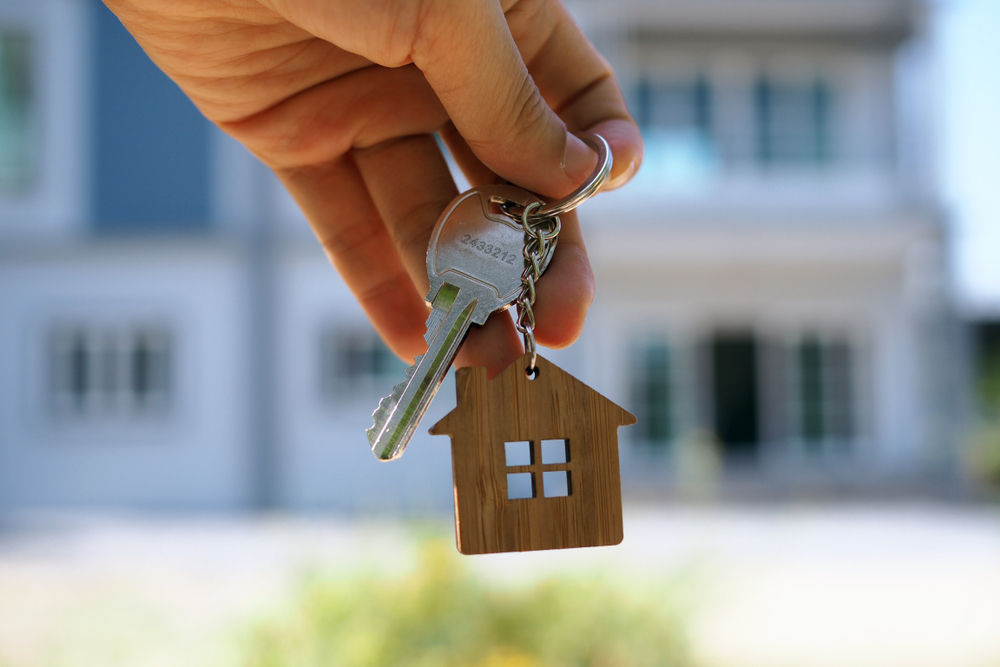Buying your first home can feel like a dream come true, but it can quickly turn into a financial nightmare if you are not prepared. First-time buyers often jump in with high hopes but limited knowledge, which can lead to expensive and stressful outcomes. From overestimating your budget to underestimating hidden costs, the road to homeownership is full of potential pitfalls. Before you make one of the biggest financial commitments of your life, get familiar with the most common mistakes that first-time buyers make and learn how to avoid them.
Skipping the Pre-Approval Process
Many first-time buyers begin house hunting without securing pre-approval from a lender. This can be a critical misstep because it means shopping without a clear understanding of what you can afford. Pre-approval is not just a formality. It gives you a firm idea of your price range and strengthens your position when making an offer. Sellers often prefer buyers with pre-approval letters because it shows that you are serious and financially capable. Without it, your dream home might slip away while you scramble for paperwork.
Underestimating the True Costs of Homeownership
The purchase price is only the beginning. First-time buyers often overlook the ongoing costs of owning a home, which can include property taxes, insurance, repairs, maintenance, utilities, and homeowners association fees. These costs add up quickly and can push you beyond your comfort zone if you have not budgeted for them. Even small issues, like fixing a leaky faucet or replacing air filters, can turn into major expenses over time. Be sure to factor in every possible cost before making a purchase decision.
Choosing Emotion Over Logic

Falling in love with a house is easy, especially when it looks picture-perfect. However, letting emotions guide your decision can lead to regrets later. First-time buyers often overlook flaws because they are too emotionally attached to the property. You may ignore warning signs like foundation cracks, outdated wiring, or poor neighborhood conditions. Always approach the process with a level head. Make a checklist of must-haves and red flags, and do not compromise on essentials because of a pretty kitchen or a charming backyard.
Failing to Hire a Trusted Home Inspector
Skipping a home inspection is one of the most dangerous mistakes a buyer can make. Even if the house looks well-maintained, hidden issues may be lurking beneath the surface. A qualified home inspector can reveal problems that are not visible to the untrained eye, such as mold, pest infestations, roof damage, or plumbing defects. If you skip this step, you may inherit expensive repairs that could have been avoided. Always budget for a thorough inspection, and take the findings seriously before finalizing your offer.
Ignoring the Importance of Location
You can renovate a home, but you cannot change its location. First-time buyers sometimes choose a house based on appearance rather than neighborhood. A beautiful home in a poorly connected or declining area may hurt your investment and quality of life. Consider school districts, access to public transport, crime rates, commute times, and future development plans. Talk to local residents, visit at different times of day, and explore nearby amenities. A great location adds long-term value to your home and can save you from buyer’s remorse.
Draining Your Savings for the Down Payment
It might be tempting to put every penny into the down payment to avoid private mortgage insurance, but leaving yourself with no emergency funds is risky. First-time buyers often forget that homes come with unexpected costs. From broken appliances to roof leaks, something will eventually need fixing. If you spend all your money upfront, you will have no cushion when problems arise. Keep a healthy savings buffer even after closing the deal, and avoid taking financial risks that could leave you house poor.
Not Understanding the Loan Terms
Mortgage contracts are filled with unfamiliar terms and small print, which can confuse many first-time buyers. Some agree to unfavorable terms simply because they do not fully understand the documents. Others may focus only on monthly payments without looking at the full loan timeline, interest rate types, or penalties for early payoff. Make sure you know if your rate is fixed or variable, how long the loan lasts, and what your total repayment will be over the years. Ask questions and read everything twice before signing.
Forgetting to Account for Closing Costs
Many new buyers are surprised by how expensive the closing process can be. Closing costs can include lender fees, title insurance, appraisal costs, attorney fees, and prepaid taxes or insurance premiums. These typically range from two to five percent of the home’s purchase price. If you do not set aside money for these costs, you may be scrambling to cover them at the last minute or have to delay your purchase. Review a detailed estimate with your lender and prepare accordingly.
Making Big Financial Moves Before Closing
Once your offer is accepted, it is crucial to keep your finances stable until the closing is complete. First-time buyers often make the mistake of changing jobs, buying new furniture on credit, or applying for other loans during this time. Even minor shifts in your credit profile can cause your mortgage approval to fall through. Lenders re-check your financial status before closing. Any new debt or income change may impact your eligibility. Stay put financially until you have the keys in your hand.
Overlooking Resale Value

Your first home may not be your forever home. Life changes, jobs relocate, families grow, and circumstances shift. First-time buyers often forget to consider how easy it will be to sell the home later. Factors like layout, number of bedrooms, garage space, and curb appeal can affect how quickly and profitably you can resell. Even if you plan to stay for years, a home that appeals to a wider market gives you flexibility and financial security down the road.
Choosing the Wrong Real Estate Agent
Not all agents are created equal. Some may lack experience, while others might not have your best interest in mind. A good real estate agent can make or break your home buying experience. They should help you negotiate a fair price, understand contracts, identify good deals, and guide you through every step of the process. First-time buyers sometimes use family friends or unvetted agents, which can lead to poor decisions or missed opportunities. Interview multiple agents and choose someone who listens to your needs and understands your budget.
Not Comparing Mortgage Lenders
Taking the first mortgage offer that comes your way is another common error. Interest rates, fees, and loan terms can vary significantly between lenders. Failing to shop around could cost you thousands over the life of your loan. Get at least three quotes and compare them side by side. Ask about hidden fees, interest rate locks, and prepayment penalties. Choose the option that balances affordability with long-term financial health, not just the one with the lowest monthly payment.
Bidding Too High in a Hot Market
When homes are selling fast, first-time buyers may panic and offer more than they should. Overbidding not only increases your debt but may also leave you with a home that is not worth the price if the market cools. Even if you can technically afford it, consider whether the home offers long-term value. Letting emotions drive bidding wars can trap you in a mortgage that stretches your finances too thin. Know your limit and walk away if a home becomes overpriced.
Forgetting About Future Lifestyle Needs
Your lifestyle today might not be the same five years from now. First-time buyers sometimes buy based on their current needs without thinking ahead. If you plan to work from home, start a family, or adopt pets, these things should influence your choice of space and layout. Buying a one-bedroom condo may seem fine now, but it might feel cramped in a few years. Always think about how your home will grow with you and whether it supports your long-term goals.
Falling for Staged Homes Without Research
Beautiful staging can hide a home’s flaws. First-time buyers are often drawn in by modern furniture, fresh paint, and lighting tricks that create an inviting atmosphere. However, the furniture does not come with the house, and cosmetic changes may be hiding deeper issues. Take a closer look at the bones of the house. Inspect cabinets, floors, windows, and ceilings. Ask when the roof, plumbing, and electrical systems were last updated. Do not let a good first impression keep you from doing your homework.
Long-Lasting Effects
Buying your first home is exciting, but the process is full of challenges that can catch you off guard. From financial missteps to emotional decisions, the risks are real and can have long-lasting effects. Take your time, ask questions, and make sure you understand every step before signing anything. A home should offer security, not stress. By learning from these common mistakes, you can protect your investment, make smarter decisions, and step confidently into homeownership with fewer regrets.
Read More: The 18 Places Burglars Always Look First Inside Your Home
Disclaimer: This article was created with AI assistance and edited by a human for accuracy and clarity.

